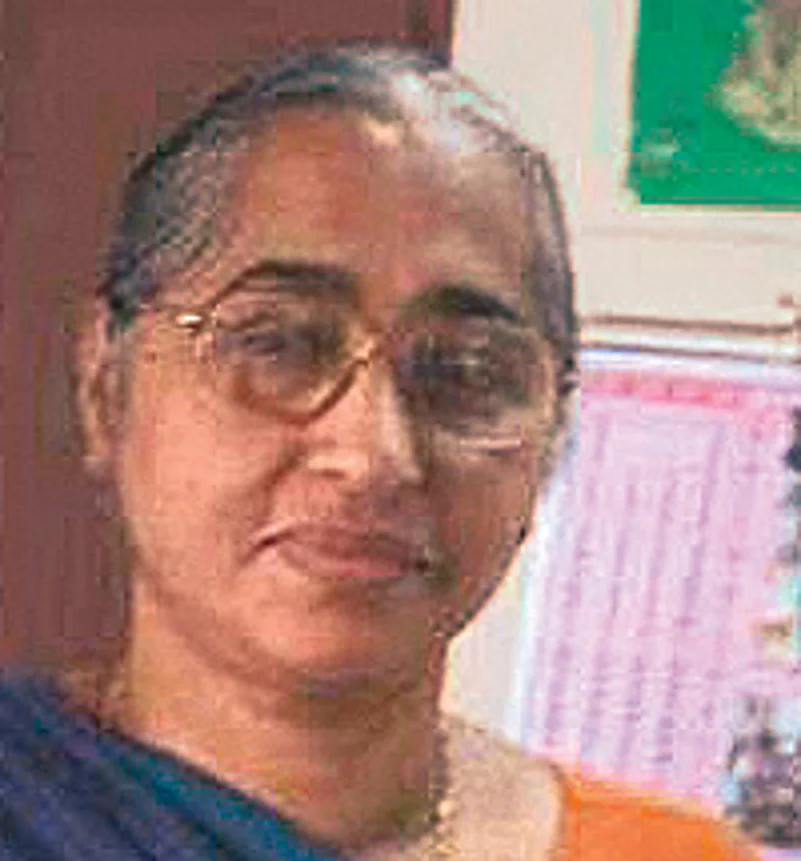- The Kerala Women's Commission cites cases of underage girls joining convents, but the Church says one can quit even after nunhood is conferred
- Such quitting brings social stigma, family pressure, say activists
- A woman opting to be a nun is denied her right to family property. (Most have poor finances in any case.)
- Many who have quit nunhood urge the Church to make a qualitative shift from just prayer and penance to more contemporary, socially relevant issues
***

| Aleyamma: She quit after 9 years as a nun |
But why do young women opt for nunhood? Some do so because they wish to dedicate themselves to Christ and the church. Others because their parents have pledged their daughter to the Lord—this may be caused by poverty, although even some wealthy households are known to dedicate their children to the church. Families also find international congregations, flush with funds, an attraction. But Pulikunnel reckons that it's more the other way around. Congregations appropriate all the earnings of nuns who work as teachers and nurses by making them take the vow of poverty (foregoing private ownership).
Several of those who had quit the order believe the world has come a long way from the near-medieval perception of cloistered life. For Aleyamma Vijayan, who quit and married a social activist, the question regarding the minimum age is not a black-and-white issue with ready answers. "I went to the convent after graduation, at an age when one is thought to be mature enough to take the right decision. But after nine years of nunhood, I quit. Which shows it can happen irrespective of whether one joins a convent quite early on or later," she says. Aleyamma now leads the Sakhi Resource Centre for Women, based in Thiruvananthapuram.
The case of Sister Alice, who joined a convent with an MA in Economics, is different though. She was enrolled as a nun with the Religious of the Assumption, but she quit the congregation because she felt that a life of prayer and poverty alone wasn't spiritually fulfilling. She then joined the movement for uplift of fishermen, and subsequently formed her own congregation, the Win Society of Jesus. She remains a nun. For her, the mission to work among the poor fisherfolk is the ministry (spiritual service).
Sister Alice feels the Women's Commission has unwittingly brought up a minor issue at the expense of the larger question of property rights. She thinks that it should have focused on the need for the government to take measures to ensure no young woman becoming a nun is denied her right to family property, as is the practice now. Says she: "I believe that if there is a legal guarantee that the nun's right to property and assets remains intact, there will be more cases of nuns exercising the choice to quit. There are those who are compelled to remain in the convent, for they have no economic security once they leave."
Church estimates say Kerala accounts for the highest number of nuns in the country—33,226 out of the total 1,02,810. Internal studies underline that while barely one-fourth of male aspirants entering Christian seminaries eventually become priests, few nuns manage to return to normal lives because of severe social, church and family pressures. Sister Alice says one way of addressing later life issues among nuns is for the congregation to make a qualitative shift from just prayer and penance to more socially relevant issues. But that's a big leap. She managed to do so by quitting her order and starting a new ministry.


























